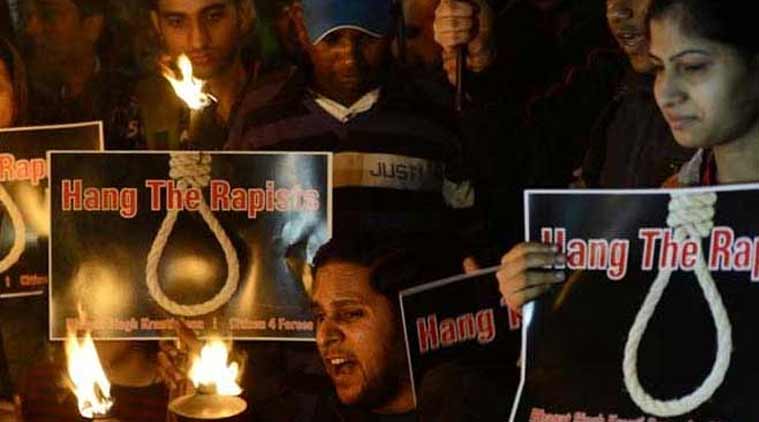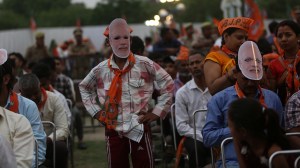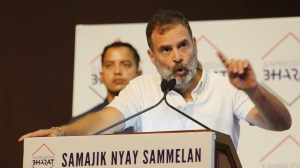- India
- International
Netaji, unreformed
Despite overwhelming protest, critique and lobbying, there is little change in the way rape is trivialised.
 The woman and her daughter were molested during a bus journey in Punjab. (Source: Express Archive)
The woman and her daughter were molested during a bus journey in Punjab. (Source: Express Archive)
Although political theorists in India, other than a few notable exceptions, have not theorised how sexual violence becomes a means of doing party politics, it is a routinised strategy of doing competitive politics in India. It is not new that crime statistics are furnished as governance indicators, or that there is competition over which state has a lesser rate of reported rape. Such numerical narratives obfuscate the fact that a number of cases of rape do not get reported, and when reported are not translated into formal criminal complaints. Moreover, higher rates of crime can also be a function of increased reporting. Most importantly, it is also important to examine what kinds of cases get recorded as rape, and which fall by the wayside. The political manipulation of numerical narratives that focus on how rape complaints are exaggerated, or which party is more permissive to rape culture, is, however, the only language of doing politics in India.
The script has not changed from Baghpat 1980, Gujarat 2002 or the series of political utterances in the aftermath of the Delhi 2013 protests. To this is added the recent statement of the Samajwadi Party chief, Mulayam Singh Yadav, that “Uttar Pradesh features at the bottom of the list” when compared to Delhi’s rate of reported rape. It is possible for him to make such political utterances because there is a foundational lack of political will to take the position that even a single incidence of rape is an emergency, or an act of war against all women.
Rape is one of the most obfuscated acts of violence precisely because it serves the interests of male-dominated institutions to conserve this form of violence. It is instrumental in maintaining male notions of political and social order that use rape as a source of terror to throttle equality, stifle democratic dissent or simply maintain masculine modes of expressing power in the private or public sphere. This is true for all kinds of institutions that thrive on male privilege, be they universities or political parties. These institutions have perfected the apparatus for disbelieving, manipulating or caricaturing the voices raised in resistance against sexual violence.
It is in the interest of the political class to script rape myths. These myths, such as that an able-bodied woman cannot be raped single-handedly by an unarmed man without incurring marks of injury, or that women invite rape, abound. Add to the proliferating rape myths the statement of Yadav, who is supposed to have said that “while one person commits a rape, four are named in the complaint, though rape by four persons is not ‘practically’ possible”.
Legal literacy is absent from this statement. It is totally devoid of any reference to the law, which defines as gangrape “where a woman is raped by one or more persons constituting a group or acting in furtherance of a common intention, each of those persons shall be deemed to have committed the offence of rape”. This group of persons who act with a common intention is liable to be committed to the offence of rape, whether or not each person in the group rapes the victim.

Each gangrape is a testimony to how hatred for women manifests itself as a pedagogy of dominance and/ or as a pleasurable sport. It is crucial to note that gangrape has become the routine and dominant form of teaching women a lesson. This is true across caste, class and community, although it has been, historically speaking, the dominant technique of violence against Dalit women.
Further, there is a certain pornography at work in Yadav’s statement — here we are called to imagine how four men would rape a woman at the same time. In this formulation, it would be practical, one would presume, for two or three men to rape a woman at the same time. This image of practicality is sourced from pornography, where the limits of male imagination of what men do to women is resourced.
This speech act, of whether or not it is practical for four men to rape a woman, is itself a form of hate speech against women. When we are invited to imagine whether or not four men can commit gangrape, a pornographic public is solicited, and a deliberate obfuscation of the legal and experiential meaning of gangrape is propagated. Such political utterance is an act of hate speech, for it justifies violence based on the hatred for all women.
Such political utterances, which insert scepticism about the very possibility of gangrape, are premised on an obfuscation of the fact that gangrape cannot be reduced to the number of men who rape a woman. In other words, it does not matter whether there were four men or 10 men who may target a woman. What matters is that such an act of violence is both collective and structural, that is, it is organised, targeted and systemic.
It is chilling that despite overwhelming protest, critique and lobbying, there is little change in the way rape is trivialised. Institutions continue to conserve sexual impunity. The survivors’ descent into silence is seen as evidence of lies rather than the work of impunity. Rather than creating safe conditions for testimony, a systemic apparatus of terror, intimidation and propaganda that caricatures sexual violence is put in place. And most sadly, while stories like these become a headline, there is scant understanding of what the outrage is about or why horror is insufficient to fight rape culture.
Further, it is not the responsibility of women who work on gender equality alone to fight rape culture. It is equally, or perhaps most urgently, the responsibility of men to eradicate rape. As Andrea Dworkin said at the Midwest Regional Conference of the National Organisation for Changing Men in Minnesota (1983), “even in wars, there are days of truce. Go and organise a truce. Stop your side for one day. I want a 24-hour truce during which there is no rape.”
The writer is associate professor, Centre for the Study of Law and Governance, Jawaharlal Nehru University, Delhi.
EXPRESS OPINION
Apr 25: Latest News
- 01
- 02
- 03
- 04
- 05










































